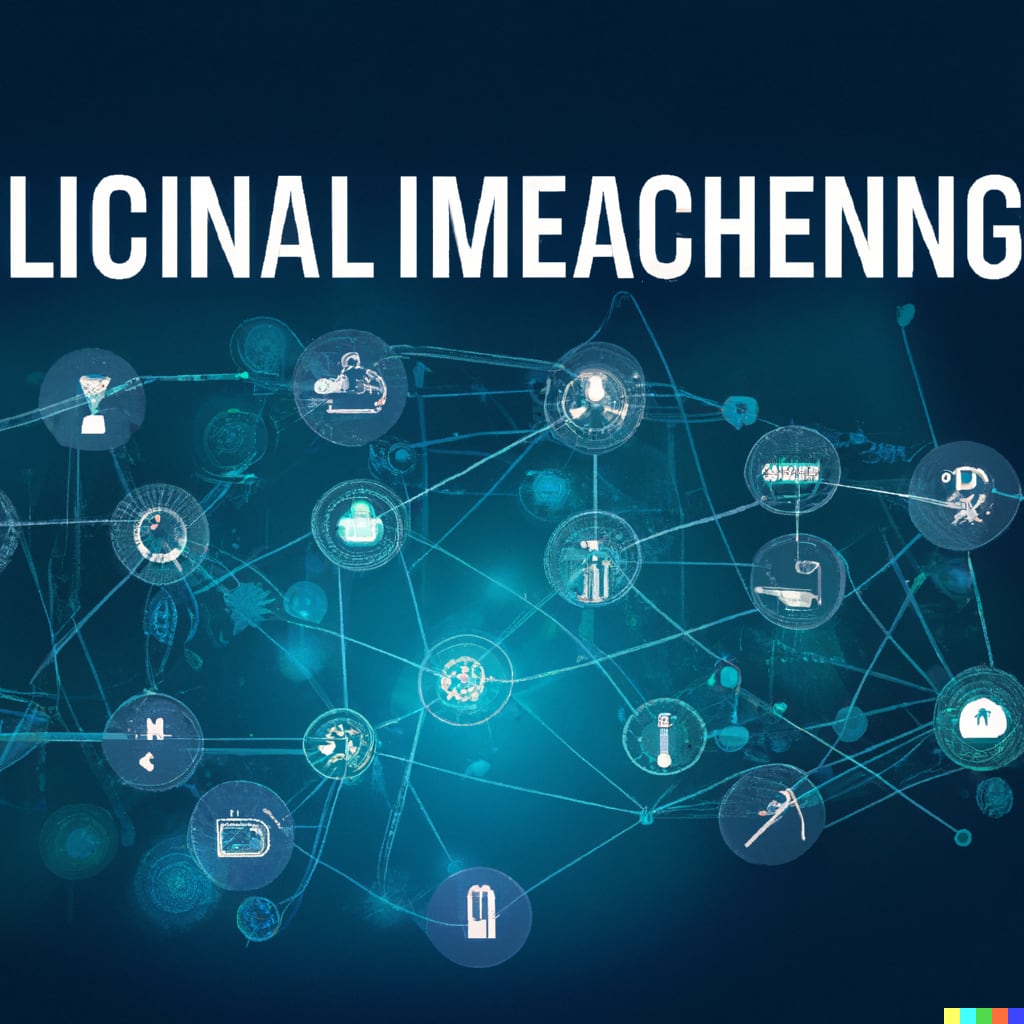The Impact of AI and Machine Learning on the Future of Healthcar
Improving Diagnosis, Personalized Medicine, and Remote Patient Monitoring with AI and ML

Artificial intelligence (AI) and machine learning (ML) are rapidly transforming the healthcare industry. From drug discovery to medical imaging and patient monitoring, AI and ML are being used to automate and optimize various healthcare processes. In this article, we will explore how AI and ML will impact the future of healthcare.
1.Improved Diagnosis and Treatment
AI and ML can help healthcare professionals make more accurate diagnoses and choose the best treatments for their patients. By analyzing large amounts of patient data, AI algorithms can identify patterns and predict outcomes more quickly and accurately than humans. This can lead to earlier diagnosis and treatment, as well as better patient outcomes.
2.Enhanced Medical Imaging
AI and ML can also be used to enhance medical imaging, making it easier for doctors to detect and diagnose diseases. For example, AI algorithms can be trained to analyze MRI and CT scans to identify early signs of cancer, heart disease, and other conditions. This can lead to earlier detection and treatment, and ultimately, better patient outcomes.
3.Personalized Medicine
AI and ML can help healthcare professionals develop personalized treatment plans for their patients. By analyzing patient data such as genetics, medical history, lifestyle, and environmental factors, AI algorithms can identify the best treatment options for each individual. This can lead to more effective treatments with fewer side effects.
4.Drug Discovery
The process of drug discovery is lengthy and complex, and it often takes years of research and clinical trials before a new drug can be approved for use. However, the use of AI and ML in drug discovery has the potential to greatly accelerate this process and improve the accuracy and efficiency of drug development.
Traditionally, drug discovery begins with the identification of a target molecule or pathway that is involved in a specific disease. Researchers then screen large libraries of compounds to identify those that have the potential to interact with the target molecule in a way that could lead to the development of a new drug.
AI and ML can greatly enhance this process by analyzing vast amounts of data to identify potential drug candidates more quickly and accurately than traditional methods. For example, AI algorithms can analyze large amounts of genetic and chemical data to identify molecules that are likely to interact with the target molecule in a specific way. They can also predict the properties and behavior of these molecules in the human body, allowing researchers to focus their efforts on those compounds that are most likely to be effective and safe.
In addition to identifying potential drug candidates, AI and ML can also help researchers optimize the development process by predicting the behavior of a drug in the human body. For example, they can predict how a drug will be metabolized and excreted, which can help researchers design drugs with fewer side effects and a higher likelihood of success.
Another area where AI and ML can be particularly helpful in drug discovery is in the identification of new drug targets. By analyzing large amounts of data, including genetic information and clinical trial data, AI algorithms can identify new molecules or pathways that may be involved in a specific disease. This can lead to the development of new drugs that target these molecules or pathways, potentially opening up new avenues for treatment.
The use of AI and ML in drug discovery is still in its early stages, but it has already shown great promise. For example, in 2020, the pharmaceutical company BenevolentAI used AI to identify a potential drug for the treatment of COVID-19. The drug was quickly moved into clinical trials, and early results have been promising.
However, there are also challenges associated with the use of AI and ML in drug discovery. One of the main challenges is the quality and availability of data. AI algorithms rely on large amounts of high-quality data to make accurate predictions, but much of the data that is currently available is of poor quality or is not easily accessible. In addition, there are concerns about the transparency and interpretability of AI algorithms, which can make it difficult to understand how they are making their predictions.
5.Remote Patient Monitoring
AI and ML can also be used to monitor patients remotely. Wearable devices and sensors can collect patient data such as heart rate, blood pressure, and blood glucose levels, which can then be analyzed by AI algorithms. This can help healthcare professionals detect early signs of disease or complications and intervene before they become serious.
In conclusion, AI and ML are poised to revolutionize the healthcare industry in the coming years. From improving diagnosis and treatment to enhancing medical imaging and drug discovery, AI and ML have the potential to transform every aspect of healthcare. As these technologies continue to evolve, we can expect to see more personalized and effective treatments, faster drug development, and better patient outcomes.
About the Creator
Dhinesh kumar.P
As an adventurer and storyteller, I share my journey to inspire others to chase their dreams and embrace life's challenges. I wrote dark poems and crime stories, please support my work
Enjoyed the story? Support the Creator.
Subscribe for free to receive all their stories in your feed. You could also pledge your support or give them a one-off tip, letting them know you appreciate their work.






Comments
There are no comments for this story
Be the first to respond and start the conversation.